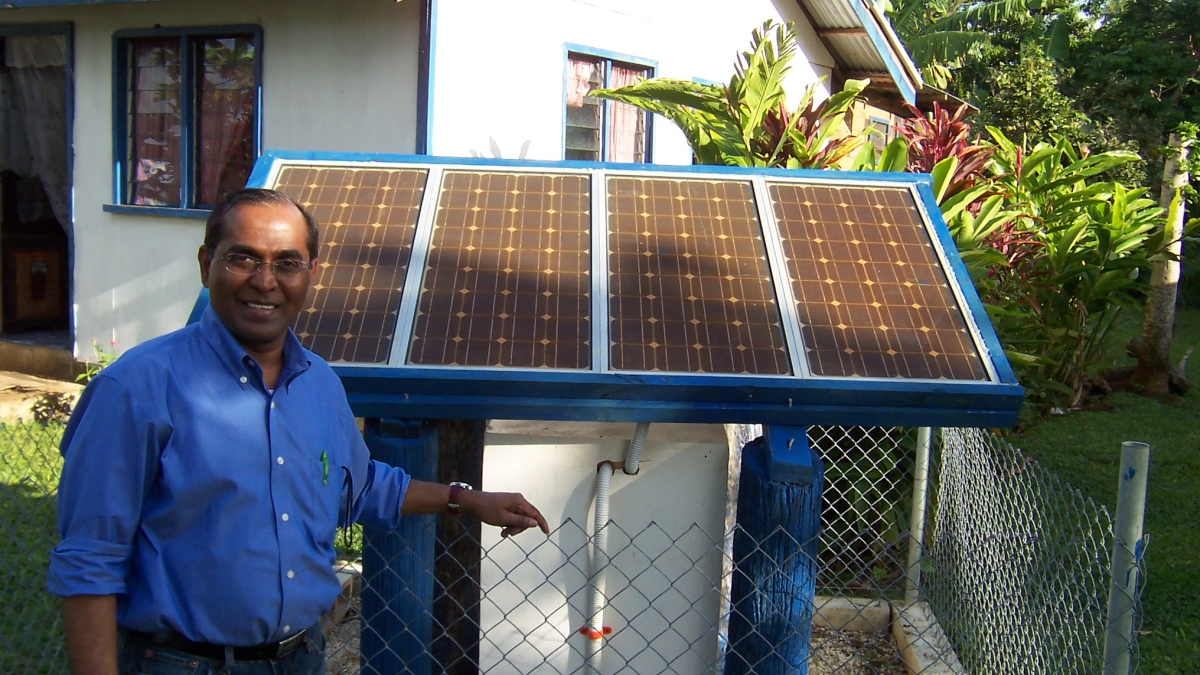ASU to lead renewable energy training, education in the Pacific Islands

The United States Agency for International Development (USAID) has awarded $1 million over the next two years to Arizona State University’s College of Technology and Innovation (CTI) to provide education for solar photovoltaic (PV) energy equipment and technology to up to 12 Pacific Island nations. In collaboration with higher education institutions and other organizations, the program aims to train local capacities to support off-grid solar PV equipment installation, operation and maintenance.
This regional program is part of the five-year Vocational Training and Education for Clean Energy (VOCTEC) program, a CTI-led global initiative sponsored by USAID. VOCTEC’s mission is to develop and implement clean energy training and education to the local communities. VOCTEC also addresses the need for developing a sustainable pipeline of solar PV technicians and building human capacity within the island region though its ‘train the trainer’ approach, giving operators and technicians the support system and resources to continue to educate and manage future operators and technicians.
“We have carefully customized the pedagogy for renewable energy in Fiji to focus on training challenges within the region which not only include educational challenges but cultural and social obstacles as well,” said Mitzi Montoya, principal investigator for the project and dean of CTI. “Building human capacity is critical to filling the energy needs of the islands now as well as sustaining the program past its duration.”
All of the Pacific Island Nations face a number of barriers to clean energy development. Of the twelve countries in the Pacific Islands region, five are classified by the United Nations as ‘least developed’ countries, and all have limited financial resources. Development of human capacity for grid-connected and off-grid solar PV must also overcome the economies of scale that the islands face as they struggle to support multiple specialized training programs. In order to provide this institutional support, the VOCTEC team identified Fiji as the centralized training hub for the USAID project.
“This project emphasizes the United States’ increased engagement and strategic support to the advancement of clean energy in the Pacific Islands,” said Gloria D. Steele, USAID mission director for the Philippines and the Pacific Islands. “We are building local capacities to develop and sustain renewable energy infrastructure in this important region.”
Prior to receiving the grant, representatives from VOCTEC travelled to the Pacific Islands region in order to meet with renewable energy stakeholders to assess conditions and needs for renewable energy. In addition to Fiji the team visited Tonga and Vanuatu. Tonga serves as an exemplar to other nations at it has already developed the Tonga Energy Roadmap (TERM), which demonstrates a strong renewable energy commitment from the government. Only 30 percent of Vanuatu’s population has access to electricity, and while they are working to develop their own energy roadmap, they need regulatory infrastructure to provide standardized training programs.
“Global agencies continue to invest in solar PVs in the Pacific Islands region to support renewable energy and displace fossil-fuel based generation,” said Govisndasamy Tamizhmani (Mani), associate research professor at CTI and principal investigator. “The most fundamental need in that area is creation of a program that trains the trainers that can continue to turn out technicians to support systems in the field and further train operators in the application of those systems.”
The $1M USAID associate grant enables VOCTEC to deliver trainer, technician and operator trainings in the Pacific Islands region over the next two years. VOCTEC will pursue additional associate grants to expand delivery of sustainable renewable energy training programs across developing nations.
Contributor: Sydney Donaldson, College of Technology and Innovation